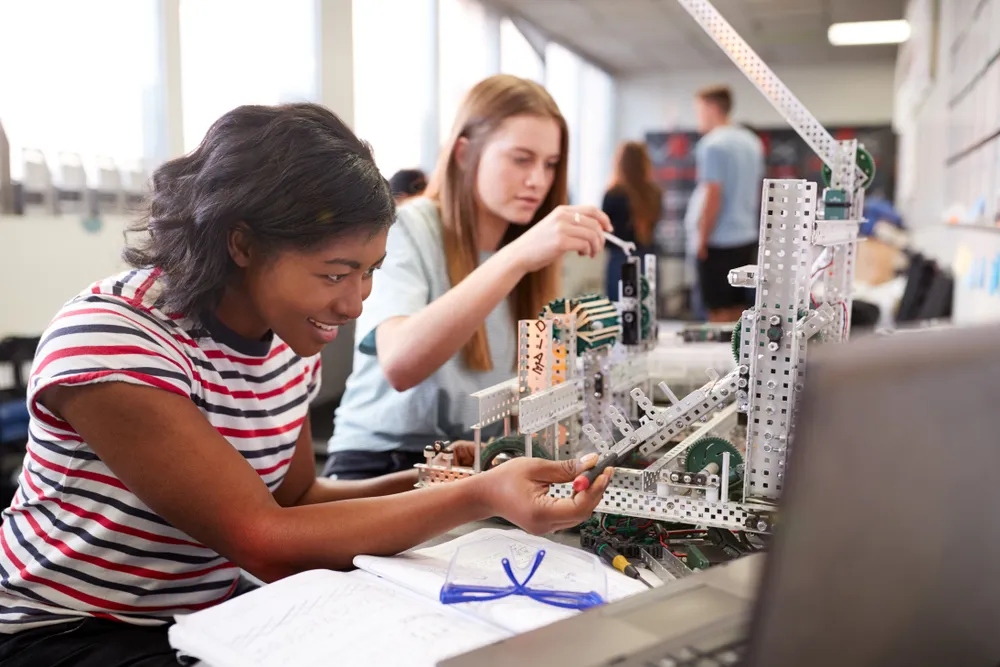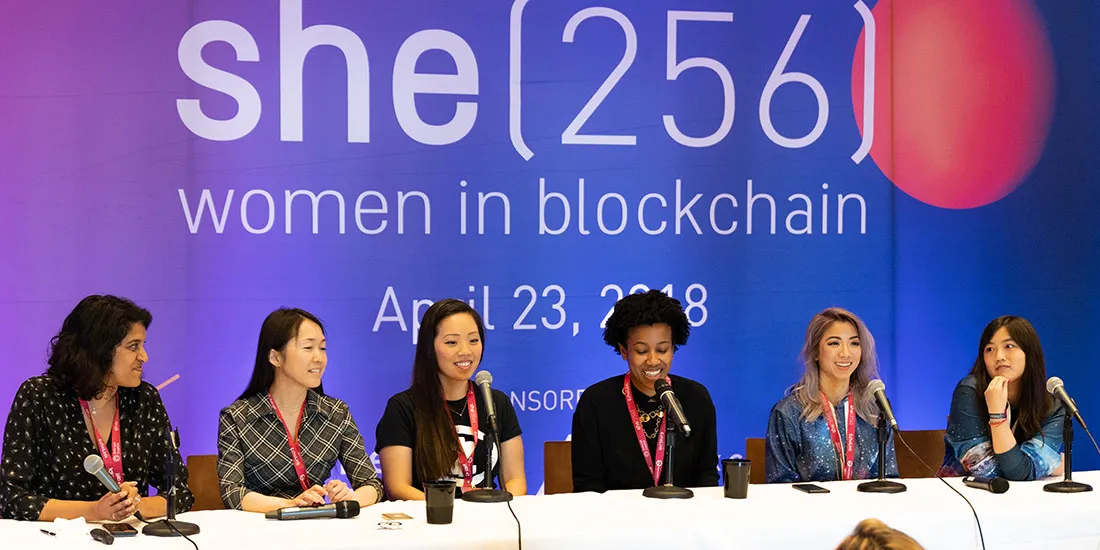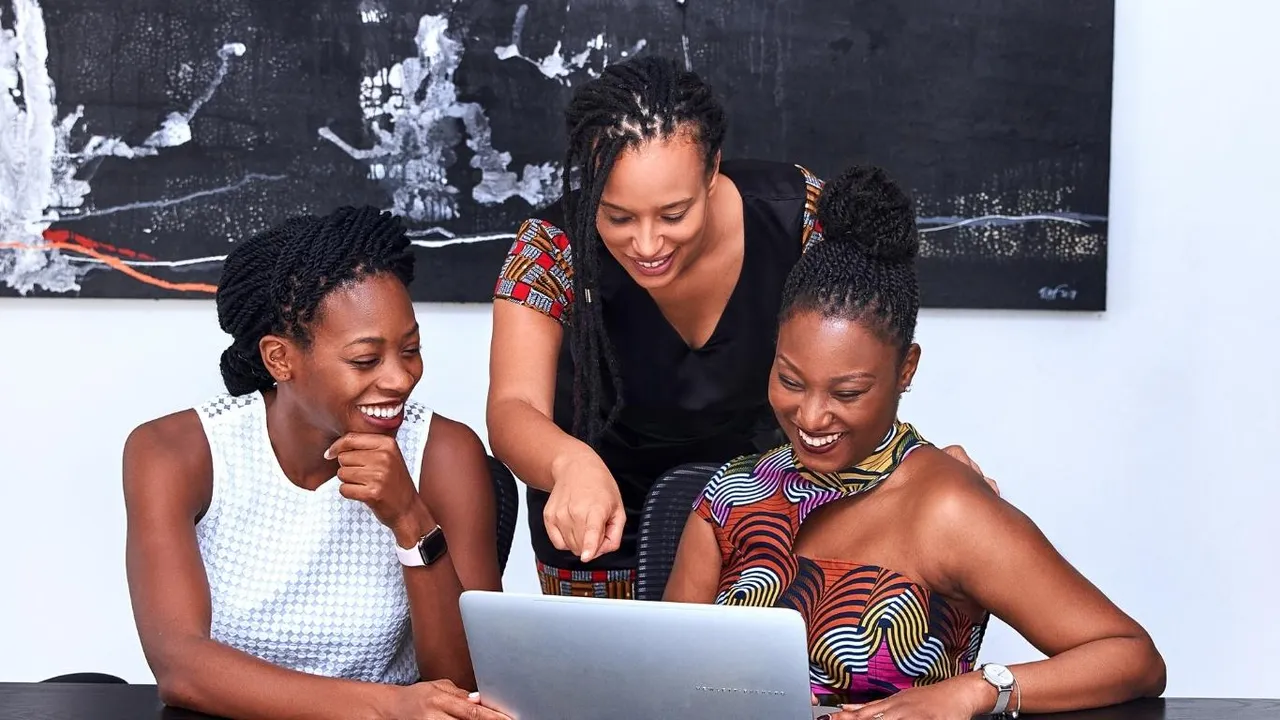
In an era where gender inequality in education remains a persistent global challenge, innovative solutions are emerging from unexpected quarters. EducDAO, a pioneering decentralized university powered by blockchain technology and artificial intelligence, represents a revolutionary approach to higher education that inherently promotes gender equity. By dismantling traditional barriers and creating new pathways for learning and economic empowerment, EducDAO demonstrates how decentralized systems can address longstanding inequities in educational access and opportunity.
The intersection of gender equity and education has never been more critical. Despite significant progress in recent decades, women and marginalized genders continue to face substantial barriers in accessing quality higher education, particularly in technology-related fields. EducDAO's model offers a compelling alternative that not only addresses these challenges but actively promotes inclusion through its fundamental design principles.
The Current State of Gender Inequality in Education
Global Challenges and Persistent Barriers
The statistics paint a sobering picture of gender inequality in education worldwide. According to the World Economic Forum's 2023 Global Gender Gap Report, the gender gap in education stands at 31.6% across 146 countries studied, with only a marginal 0.3% improvement from the previous year. While girls achieve near parity with boys in primary school completion rates at 90%, this equality diminishes significantly after primary education.
The disparities become even more pronounced when examining regional differences. In high-income countries, girls participate in primary school at 88% compared to boys and in secondary school at 66%, often outperforming boys in standardized assessments. However, in low-income and conflict-affected regions, the ratio of girls to boys attending primary school drops dramatically to just 31%, highlighting the massive inequality based on geographic and economic circumstances.

Structural Barriers Limiting Women's Educational Access
Several interconnected factors contribute to persistent gender inequality in education:
Socio-Economic Constraints: In low-income regions, families facing economic hardship often prioritize boys' education over girls', perpetuating cycles of inequality. The COVID-19 pandemic exacerbated these challenges, pushing an additional 70 million people below the extreme poverty line and causing approximately one billion children to lose a year of schooling, with girls disproportionately affected.
Cultural and Social Norms: Traditional gender roles in many societies expect girls to prioritize household responsibilities and caregiving over formal education. These cultural expectations limit opportunities for independence and empowerment that education provides, creating long-term societal impacts.
Institutional Barriers: Many educational institutions lack robust policies addressing girls' specific needs, including privacy, hygiene, and gender-specific health education. The absence of appropriate facilities and support systems can effectively exclude girls from educational opportunities.
Financial Obstacles: The direct and indirect costs of education create significant barriers, particularly for families with limited resources. When financial choices must be made, cultural biases often favor investing in boys' education over girls'.
The Technology Gap and Its Implications
The gender gap becomes particularly pronounced in technology and STEM fields, areas that are increasingly crucial for economic participation in the digital age. Women remain underrepresented in blockchain, cryptocurrency, and other emerging technologies that are reshaping the global economy. This underrepresentation has far-reaching implications, as these fields offer significant opportunities for economic empowerment and innovation.
Traditional educational institutions have struggled to address these disparities effectively. Rigid structures, high costs, geographic limitations, and cultural barriers within conventional universities often perpetuate rather than solve gender inequality issues.
EducDAO: A Revolutionary Approach to Inclusive Education
Understanding the Decentralized University Model
EducDAO represents a fundamental reimagining of higher education through decentralization. Unlike traditional universities with centralized governance, physical campuses, and hierarchical structures, EducDAO operates as a decentralized autonomous organization (DAO) on the blockchain. This structure inherently promotes democratic participation and equal access to educational opportunities.
The university leverages blockchain technology and artificial intelligence to create a transparent, accessible, and inclusive learning environment. Students from around the world can participate regardless of their geographic location, economic status, or traditional academic credentials. This democratization of access is particularly significant for women and marginalized groups who have historically faced barriers in traditional educational systems.
Core Principles Promoting Gender Equity
Universal Access Without Gatekeepers: EducDAO eliminates traditional admission barriers that have historically excluded many qualified candidates, particularly women from underrepresented backgrounds. There are no geographic restrictions, no requirement for expensive standardized tests, and no bias-prone admission committees. This open-access model ensures that talent and motivation, rather than privilege or circumstance, determine educational opportunities.
Economic Empowerment Through Freeos Integration: One of EducDAO's most innovative features is its integration with Freeos, a decentralized economic system that provides universal basic income (UBI) to participants. All EducDAO students can receive Freeos basic income, addressing one of the most significant barriers to women's education: financial constraints.
This economic support is particularly crucial for women, who often face additional financial pressures related to family responsibilities and caregiving duties. The UBI model allows students to focus on their education without the stress of immediate economic survival, creating conditions where women can pursue long-term educational goals without sacrificing family obligations.
Flexible Learning Accommodating Life Circumstances: EducDAO's decentralized structure allows for unprecedented flexibility in learning schedules and approaches. This flexibility is particularly beneficial for women, who often juggle multiple responsibilities including childcare, eldercare, and household management. Students can learn at their own pace, participate in global communities, and balance education with other life commitments.
Democratic Governance and Equal Participation: The DAO structure ensures that all participants have equal voice in governance decisions. This democratic approach contrasts sharply with traditional universities where decision-making is often concentrated among predominantly male leadership. In EducDAO, women have equal representation and influence in shaping the institution's direction and policies.

Collaborative Learning and Diverse Communities
EducDAO emphasizes collaborative learning in diverse groups of 6-8 students, fostering cross-cultural understanding and breaking down traditional barriers. These small, diverse learning communities create supportive environments where women can develop confidence, leadership skills, and professional networks that extend globally.
The collaborative model also addresses the isolation that many women experience in male-dominated fields. By creating inclusive learning environments from the outset, EducDAO helps normalize women's participation in technology and other traditionally male-dominated areas.
The Freeos Universal Basic Income: A Game-Changer for Gender Equity
Understanding Freeos and Its Gender Impact
Freeos (rhymes with "free us") operates as a decentralized economic system that provides universal basic income through its community-driven cryptocurrency, FREEOS. The system's design principles align closely with gender equity goals, offering economic independence and empowerment opportunities that are particularly beneficial for women.
The Freeos system operates on democratic principles where every participant has equal voting rights in monetary policy decisions. This "one person, one vote" approach ensures that women have equal influence in economic governance, contrasting with traditional financial systems where women have historically been underrepresented in decision-making roles.
Economic Benefits Specifically Addressing Women's Needs
Financial Independence: The weekly FREEOS income provides women with economic autonomy that can be transformative. For many women, especially those in traditional societies, this represents their first experience with independent income not tied to family or spousal support.
Reduced Economic Dependence: By providing basic income during studies, Freeos reduces women's economic dependence on family members who might otherwise control their educational choices. This independence allows women to pursue fields of study that align with their interests and aptitudes rather than family expectations.
Support for Unpaid Care Work: Women globally perform a disproportionate amount of unpaid care work. The Freeos basic income provides some economic recognition and support for these responsibilities while enabling women to pursue education simultaneously.
Entrepreneurship Opportunities: The FREEOS tokens and blockchain ecosystem create opportunities for women to engage in entrepreneurship and innovation within the decentralized economy, potentially leading to additional income streams and business development.
Addressing Intersectional Challenges
The combination of EducDAO and Freeos is particularly powerful for women facing multiple forms of discrimination. Women of color, LGBTQ+ women, women with disabilities, and women from low-income backgrounds often face compounded barriers in traditional educational and economic systems. The decentralized, inclusive nature of both platforms provides alternative pathways that bypass many traditional gatekeepers and bias points.

Blockchain Technology as an Equalizer
Transparency and Accountability
Blockchain technology provides unprecedented transparency in educational credentialing and economic transactions. This transparency is particularly beneficial for women, who have historically faced discrimination in credential recognition and economic participation. Blockchain-based credentials are immutable and verifiable, reducing opportunities for bias in hiring and advancement decisions.
The transparent nature of blockchain also ensures that governance decisions within EducDAO are visible and accountable. Women can verify that their voices are heard and their votes counted equally, building trust in the system's fairness.
Global Accessibility and Network Effects
Blockchain technology enables EducDAO to operate globally without the infrastructure requirements of traditional universities. This global reach is particularly important for women in regions where local educational opportunities are limited or culturally restricted. Women can access world-class education and connect with global networks without leaving their communities or challenging local cultural norms directly.
The network effects of blockchain also create opportunities for women to build professional relationships and collaborations across geographic and cultural boundaries. These connections can lead to career opportunities, mentorship relationships, and collaborative projects that might not be available through traditional educational channels.
Innovation in Educational Delivery
Blockchain enables innovative approaches to education that can be particularly beneficial for women. Smart contracts can automate many administrative processes, reducing bureaucratic barriers. Decentralized storage ensures that educational materials and credentials remain accessible regardless of political or economic instability in any particular region.
The technology also enables micro-credentialing and skill-based recognition that can be particularly valuable for women who may have non-traditional educational backgrounds or who need to demonstrate competencies gained through experience rather than formal education.
Real-World Impact and Success Stories
Growing Participation and Outcomes
EducDAO's remarkable growth from 13 initial members to over 222,000 students in five years demonstrates the demand for alternative educational models. While specific gender breakdown data is not publicly available, the platform's design principles and accessibility features suggest significant participation by women and underrepresented groups.
The integration with Freeos has created a sustainable economic model that supports continued learning and development. Students report that the basic income allows them to take educational risks and pursue innovative projects that might not be possible under traditional economic constraints.
Skills Development for the Digital Economy
EducDAO's focus on blockchain, AI, and decentralized technologies prepares students for the emerging digital economy. For women, this represents an opportunity to enter high-growth, high-value fields at the ground level, potentially avoiding some of the historical barriers that exist in established industries.
The collaborative learning model also develops soft skills that are increasingly valuable in the modern economy: cross-cultural communication, remote collaboration, project management, and digital literacy. These skills are particularly important for women who may need to navigate complex work-life balance challenges in their careers.
Community Building and Support Networks
The EducDAO community provides ongoing support and networking opportunities that extend beyond formal education. Women participants report developing strong professional networks and mentorship relationships that support their career development and entrepreneurial ventures.
The global nature of the community also provides exposure to diverse perspectives and opportunities that might not be available in local contexts. This exposure can be particularly valuable for women in conservative societies where local opportunities may be limited.
Addressing Potential Challenges and Limitations
Digital Divide and Access Issues
While EducDAO's digital-first approach offers many advantages, it also requires reliable internet access and digital literacy. In regions where women have limited access to technology or digital skills, additional support may be needed to ensure equitable participation.
The platform has addressed some of these challenges by providing educational resources and support for digital literacy development. The community-driven nature of the platform also enables peer-to-peer support and mentorship in developing technical skills.
Cultural and Social Barriers
Despite its innovative approach, EducDAO cannot completely eliminate cultural and social barriers that limit women's educational participation. In some contexts, family or community opposition to women's education may persist regardless of the platform's accessibility.
However, the platform's flexibility and remote nature can help women navigate some of these challenges by allowing discrete participation and gradual demonstration of educational value to skeptical family or community members.
Quality Assurance and Recognition
As a relatively new educational model, EducDAO faces challenges in gaining recognition from traditional employers and institutions. This recognition gap could potentially limit the immediate career benefits for graduates, particularly in conservative industries.
The platform addresses this challenge through blockchain-based credentialing that provides verifiable proof of skills and knowledge. As the digital economy grows and employers become more familiar with alternative credentialing, these barriers are likely to diminish.
The Broader Implications for Society
Economic Development and Innovation
Gender equity in education has profound implications for economic development. Research consistently shows that educating women generates significant economic returns, with each additional year of schooling for women associated with a 9% increase in hourly earnings. At the societal level, women's education contributes to reduced poverty, improved health outcomes, and increased innovation.
EducDAO's model amplifies these benefits by providing not just education but also economic empowerment through the Freeos system. This combination creates conditions for women to become economic actors and innovators rather than just educated individuals seeking employment in existing systems.
Social Change and Cultural Transformation
The success of women in EducDAO's programs can have ripple effects in their communities, challenging traditional gender roles and expectations. As women demonstrate success in technology and entrepreneurship, they create new models for other women and girls to follow.
The global nature of the EducDAO community also facilitates cross-cultural exchange and learning that can contribute to broader social change. Women from different cultural contexts can share experiences and strategies, creating a global network of support and advocacy.
Environmental and Sustainability Benefits
The decentralized, digital-first approach of EducDAO has environmental benefits compared to traditional university models. Reduced need for physical infrastructure, transportation, and resource consumption aligns with sustainability goals that are increasingly important to younger generations.
Women's participation in environmental and sustainability initiatives is often high, and EducDAO's model enables women to develop skills and knowledge relevant to addressing climate change and environmental challenges.
Future Directions and Potential Developments
Scaling and Expansion
As EducDAO continues to grow, maintaining its commitment to gender equity and inclusion will be crucial. The platform's decentralized governance model provides mechanisms for ensuring that growth doesn't compromise its foundational principles.
Future developments might include specialized programs addressing specific challenges faced by women in different regions or industries. The platform's flexibility allows for rapid adaptation and innovation in response to emerging needs.
Integration with Traditional Systems
As EducDAO gains recognition and credibility, opportunities for integration with traditional educational and economic systems may emerge. These integrations could help bridge the gap between innovative educational models and established career pathways.
Partnerships with employers, governments, and other educational institutions could help ensure that EducDAO graduates have clear pathways to career advancement and economic participation.
Technology Evolution
Continued advancement in blockchain, AI, and other technologies will likely enhance EducDAO's capabilities and impact. Improvements in user experience, accessibility, and functionality could further reduce barriers to participation.
Emerging technologies like virtual and augmented reality could enhance the collaborative learning experience and provide new opportunities for hands-on skill development.
Conclusion: A Model for Equitable Education
EducDAO's decentralized university model represents more than just an innovative approach to education; it embodies a fundamental reimagining of how educational systems can promote equity and inclusion. By combining blockchain technology, democratic governance, economic empowerment through Freeos, and flexible learning approaches, EducDAO addresses many of the structural barriers that have historically limited women's educational opportunities.
The platform's success in growing from 13 members to over 222,000 students demonstrates the demand for alternative educational models that prioritize accessibility and inclusion. For women, particularly those facing multiple forms of discrimination or economic constraints, EducDAO offers pathways to education and empowerment that were previously unavailable.
The integration of universal basic income through Freeos addresses one of the most significant barriers to women's education: economic constraints. By providing financial support during studies, the platform enables women to pursue long-term educational goals without sacrificing immediate economic needs or family responsibilities.
Perhaps most importantly, EducDAO's model demonstrates that technology can be a force for equity rather than exclusion. While digital divides and access issues remain challenges, the platform's community-driven approach and commitment to inclusion provide frameworks for addressing these barriers.
As we look toward the future of education, EducDAO's model offers valuable lessons for creating more equitable and inclusive educational systems. The platform's emphasis on democratic governance, economic empowerment, and flexible learning provides a blueprint for addressing gender inequality in education at scale.
The success of EducDAO and similar initiatives will depend on continued commitment to equity and inclusion as core principles rather than secondary considerations. By maintaining focus on these values while scaling and evolving, decentralized educational platforms can play a crucial role in creating a more equitable and prosperous future for all.
For women around the world, EducDAO represents more than an educational opportunity; it represents a pathway to empowerment, independence, and the ability to shape their own futures. In a world where gender inequality in education remains a persistent challenge, such pathways are not just valuable—they are essential for creating the equitable society we aspire to build.
The revolution in education is not just about technology or innovation; it's about creating systems that recognize and nurture human potential regardless of gender, geography, or circumstance. EducDAO's decentralized university model shows us that this revolution is not only possible but already underway, creating new possibilities for women and marginalized communities worldwide.
This article explores how EducDAO's innovative approach to decentralized education creates new opportunities for gender equity in higher education. Through its integration with Freeos universal basic income and commitment to democratic governance, EducDAO demonstrates how technology can be leveraged to address longstanding inequalities and create more inclusive educational systems.
More about EducDAO at https://educdao.live
More about Freeos at https://freeos.io